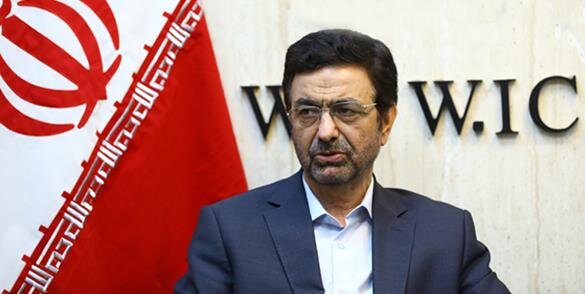West drives a wedge between Iran, EU through meddling: MP

TEHRAN – Iranian lawmaker Fada Hossein Maleki has reacted to the escalation of tensions between Iran and the European Union, saying the West is to blame for the escalation.
He said Western meddling in Iran and their non-compliance with the terms of the 2015 Iran nuclear deal, officially known as the Joint Comprehensive Plan of Action (JCPOA), has exacerbated the atmosphere of distrust between Tehran and Brussels.
“The non-commitment of the Europeans in the JCPOA and their increased interference in Iran's internal issues has created a wall of distrust between us and the European Union,” Maleki told the Islamic Consultative Assembly New Agency (ICANA).
Maleki, who is a member of the Parliament’s National Security and Foreign Policy Committee, said the Islamic Republic has based it foreign policy on its national interests.
“The Islamic Republic of Iran has defined its foreign policy framework based on the country's national interests and has relations with different countries based on this,” he noted.
The lawmaker added, “We have a special strategy and political relations with the neighboring countries and the region, and we have defined relations with the Westerners and Latin American countries based on national interests. But a wall of mistrust has been created between us and the European Union for a long time.”
He continued, “Mistrust between Iran and the European Union increased especially after the issue of the JCPOA and the withdrawal of the US from the nuclear agreement and the Europeans' disregard for JCPOA obligations. Westerners did not have a single and coherent policy in the JCPOA negotiation process and their position. Therefore, Iran lost its trust in Westerners.”
Maleki stated, “In the last three months, despite the fact that the political equations of Europe were affected by the war in Ukraine in various ways, they, especially France and Germany, tried to advance their goals by increasing their interference in the internal affairs of our country. This issue is not acceptable to us in any way, and the European Union should stop unnecessary interference instead of fueling these tensions.”
He asserted, “Of course, based on the principles of diplomacy, there are loopholes to restore relations, but the Islamic Republic of Iran never forgets these interventions and pays attention to this point in decisions and negotiations.”
The lawmaker said, “Iran’s strategic position, the prominent presence of the Islamic Republic in the Shanghai Cooperation Organization and the development of Iran's relations with China and Russia and trade exchanges show the fact that Iran has become a powerful country and that has worried the Europeans. Therefore, they want to reduce Iran's power by increasing interference and fueling tensions.”
Tensions have risen between Iran and several European countries in the last few months over Iran’s internal developments.
Hossein Noushabadi, an Iranian lawmaker sitting on the Parliament’s National Security and Foreign Policy Committee, also pointed to the rising tensions between Iran and the EU.
“Josep Burrell, as the representative of the European Union, should have a more active role to resolve tensions. Because the Europeans were the cause of the current situation and existing tensions. In addition to interfering in Iran's internal issues, they showed that they are seeking to create a crisis in our country by illegally interfering in the affairs of the Islamic Republic and supporting rioters, although they did not get any results,” Noushabadi told ICANA.
He added, “Some European countries and JCPOA parties have activated their embassies and spy services in Tehran in the last three months, despite the fact that we did not interfere in the internal affairs of other countries.”
Underlining that Borrell should seek to solve the crisis, the lawmaker said, “We have no prohibition to negotiate, although there are differences of opinion regarding the content of the negotiations and interests. But we adhere to negotiations that result in a suitable and practical outcome. So, Mr. Borrell should focus his efforts on solving these issues.”
The UK has summoned the Iranian ambassador and recalled its ambassador to Tehran for more consultations in the wake of the execution of Alireza Akbari. It also imposed sanctions on Iranian individuals and entities.
Commenting on the UK response, Iranian lawmaker Jalil Rahimi Jahan Abadi said, “It is natural for the British to react to the execution of a person who was a valuable asset for them, who spied, acted in their favor and against the national interests of his country, and sold information to the British.”
In reaction to unreasonable interferences of Britain in the Islamic Republic’s national security, British Ambassador to Tehran Simon Shercliff on Saturday noon was summoned by the director general of the Iranian Foreign Ministry’s West European Department, according to a statement by the Foreign Ministry.
In the meeting, Iran’s protest was filed with the British government against acts of sabotage against national security.
Leave a Comment